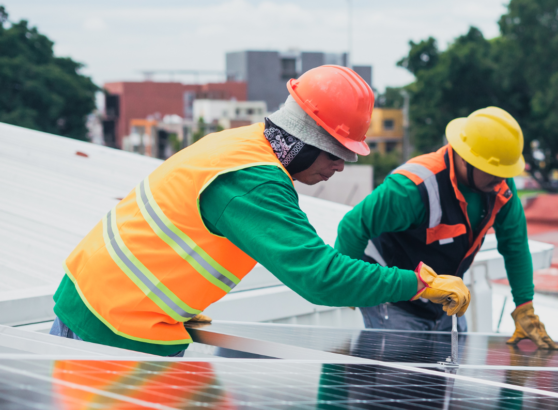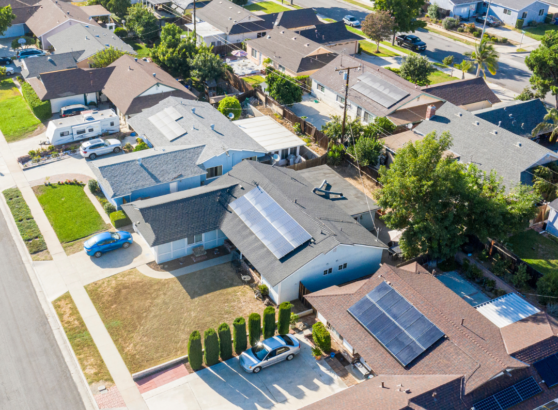Solar energy is an increasingly popular solution for reducing energy costs and promoting sustainability. The push for renewable energy has gained significant traction, especially with the availability of government rebates and incentives that make solar energy more affordable than ever. These rebates can dramatically reduce the upfront costs of solar installation, helping homeowners and businesses transition to clean energy with less financial burden.
Overview of Solar Rebates in Melbourne
The Victorian government, along with national programs, offers several incentives to encourage the adoption of solar energy. These incentives aim to help residents reduce their energy bills and carbon footprint, while supporting the state’s goal of achieving net-zero emissions by 2050.
The most significant program in Victoria is the Solar Homes Program, which provides rebates for solar panel installations, battery storage, and solar hot water systems. These rebates are designed to offset the upfront costs of solar installations, making it easier for homeowners to access clean, renewable energy.
Key Components of the Solar Homes Program
- Solar Panel Rebate: The Solar Panel Rebate is available to eligible homeowners who install solar panels on their property. As of 2023, the Victorian government offers rebates of up to $1,400 for solar panel installations. This substantial reduction in the initial costs has made solar energy accessible to a larger population.
- Battery Storage Rebate: Along with solar panels, the Solar Homes Program also offers rebates for battery storage systems. Battery storage allows homeowners to store excess solar energy generated during the day for use at night or during power outages. The rebate can go up to $2,950, making battery storage systems much more affordable for those looking to increase their energy independence.
- Solar Hot Water Rebate: For homeowners who want to lower their hot water costs, the program also provides rebates of up to $1,000 for installing solar hot water systems. This option is especially appealing to those looking to switch to renewable energy without committing to a full solar panel system.
- Interest-Free Loans: In addition to rebates, the Solar Homes Program offers interest-free loans to eligible homeowners. These loans match the value of the solar panel rebate and can be repaid over a period of four years. This further reduces the financial burden of going solar, allowing more households to invest in renewable energy.
How Government Rebates Lower the Cost of Solar Energy
Reduced Upfront Costs
One of the biggest barriers to adopting solar energy is the upfront cost of installing solar panels and battery systems. For many homeowners, the initial investment can seem overwhelming. Government rebates directly reduce these costs, making solar systems more affordable for a wide range of budgets.
For example, a solar panel installation in Melbourne can range from $4,000 to $7,000, depending on the size and type of system. With the Solar Homes Program rebate, eligible homeowners can receive up to $1,400 off this cost. Coupled with an interest-free loan, homeowners can effectively halve their upfront investment.
Faster Return on Investment (ROI)
Government rebates not only reduce the initial cost but also accelerate the return on investment for solar energy systems. By lowering the upfront costs, homeowners can recoup their investment more quickly through energy savings. In most cases, homeowners can expect to see a return on investment within 4 to 6 years, depending on their energy consumption and the size of the system.
In addition, the battery storage rebate makes it easier for homeowners to maximize their solar energy usage. By storing excess energy for use during peak periods or at night, homeowners can further reduce their reliance on the grid, leading to even greater savings over time.
Increased Property Value
Solar energy systems are known to increase property value. Homes equipped with solar panels and energy storage systems are attractive to environmentally conscious buyers, and homes with lower energy bills are often valued higher. The availability of government rebates makes it more affordable for homeowners to invest in solar, thus increasing their property value and appeal when selling.
Environmental Benefits
Beyond the financial benefits, government rebates help accelerate the adoption of solar energy, contributing to a cleaner, greener environment. By making solar more affordable, these programs are helping reduce carbon emissions and reliance on fossil fuels, which are major contributors to climate change.
For every household that switches to solar, the carbon footprint is significantly reduced. On average, a 5kW solar system in Melbourne can offset up to 7,000 kg of carbon dioxide annually. With the Victorian government aiming for net-zero emissions by 2050, every solar installation brings the state closer to its sustainability goals.
Government rebates make solar energy not only more affordable but also a financially smart investment. Programs like the Solar Homes Program, with its rebates for solar panels, battery storage, and hot water systems, drastically reduce the upfront costs of going solar. This allows more homeowners and businesses to make the switch to clean energy while enjoying long-term savings and environmental benefits.
If you’re considering going solar, now is the perfect time to take advantage of these generous government rebates and incentives. Contact an approved solar retailer today to find out how much you can save and start your journey toward energy independence and sustainability.







